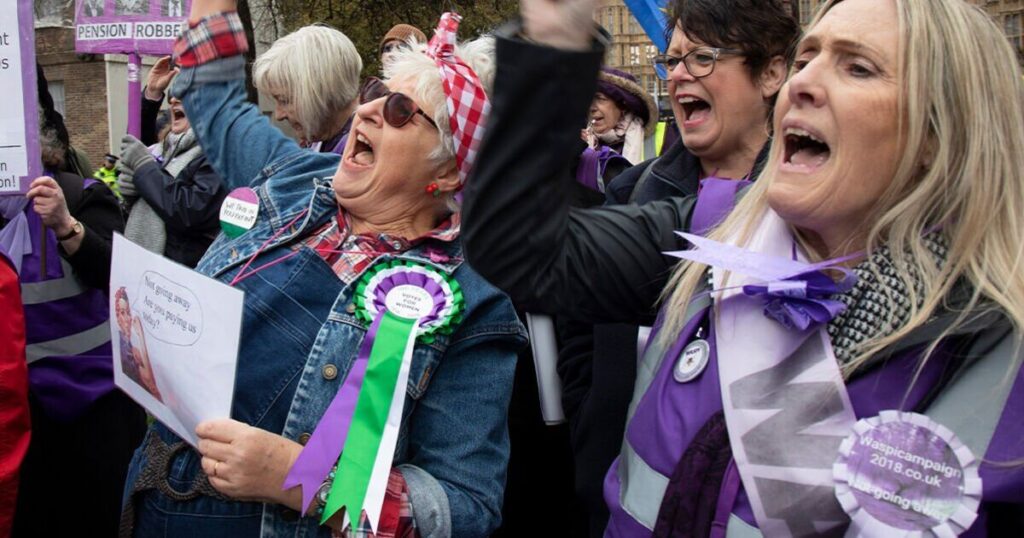
Labour ministers have set out their reasoning for deciding not to compensate the WASPI (Women Against State Pension Inequality) generation of women.
The WASPI campaigners are calling for compensation for 1950s-born women, claiming they were not properly informed by the DWP that their state pension age would increase from 60 to 65 and to 66.
The Parliamentary and Health Service Ombudsman previously recommended payouts up to £2,950, but the Government announced at the end of 2024 that there would be no payouts.
Many individual MPs still back the cause for compensation, with Labour MP Brian Leishman standing up in the Commons this week to raise the issue, warning that people are becoming « disillusioned with politics and politicians » as they see little change.
He pointed to the Government’s recent as an example: « The Tories would not compensate the WASPI women, and it looks like neither will we. »
The concerned MP went on to set out a gloomy prospect for the Government, asking if ministers realised that « if we do not provide the positive change that we promised and improve living standards, then the next Government could be a hard-line, far-right effort that looks to impoverish society further ».
Work and Pensions minister, Sir Stephen Timms, provided a response, saying the Labour adminitstration was determined to deliver change.
He said: « On the question of WASPI, we do not think that compensation is appropriate. The evidence is that 90% of those affected did know there was a change was coming out. »
He also said there would be issues in working out how the women were affected: « Of course, we cannot now work out now who did and who did not.
« But among those investigated by the Ombudsman, nobody lost financially from not knowing so we could not justify paying out up to £10billion in compensation. Instead, we are going to work to make sure that the problem never happens again. »
Another MP had a question about WASPI for the Government, with DUP MP Carla Lockhart warning that women across the UK « feel let down by this Government, and rightly so ».
She demanded of ministers what they would be doing to reassure women, saying that « he needs to put action to his words ».
Mr Timms responded to say the Government would work with the Ombudsman to ensure « this never happens again ».
Setting out their future plans, he explained: « A detailed report will be published. We are committed to making sure that in the future, sufficient notice is given of any state pension changes.
« We are going to develop a communications strategy using the most up-to-date methods for the state pension. » He referred to the state pension forecast tool on the Government website, which shows you how much state pension you are on track to receive and when you can claim.
The state pension age is currently 66 for both men and women. This is going up in stages to 67, between 2026 and 2028. The access age will increase again from 67 to 68 between 2044 and 2046, although there have previously been reports that this timetable could be brought forward.
